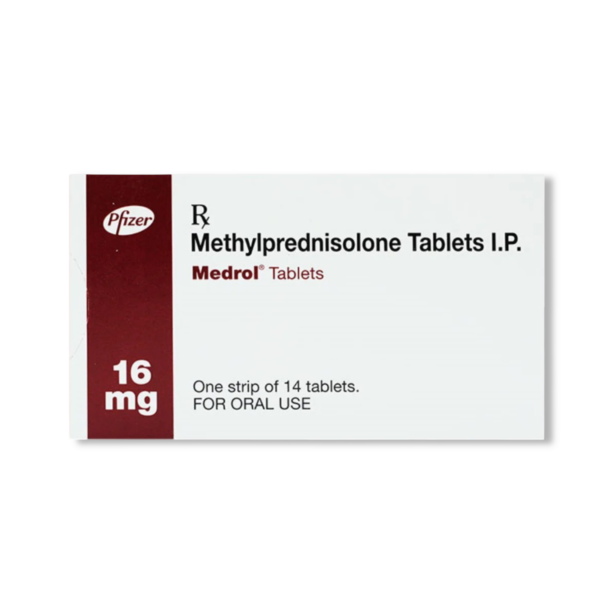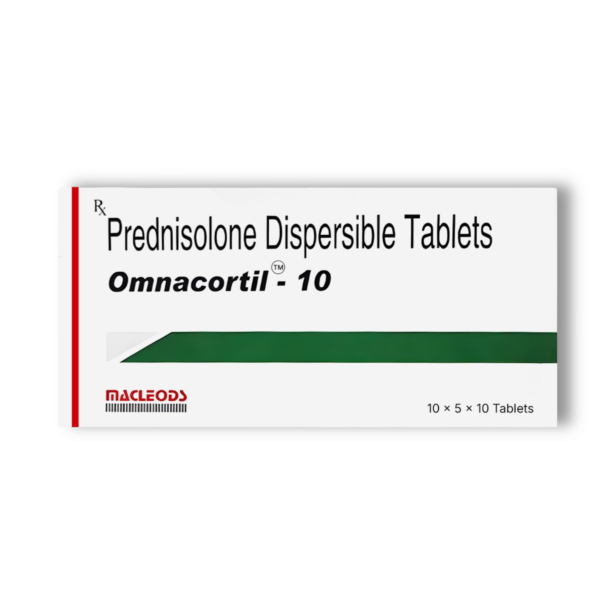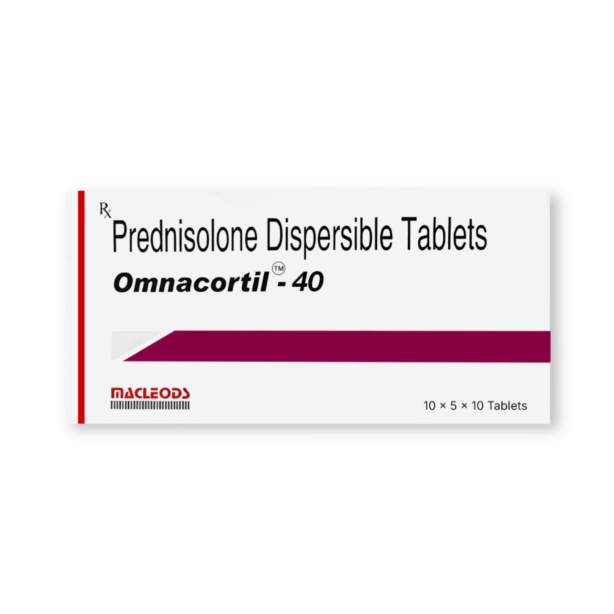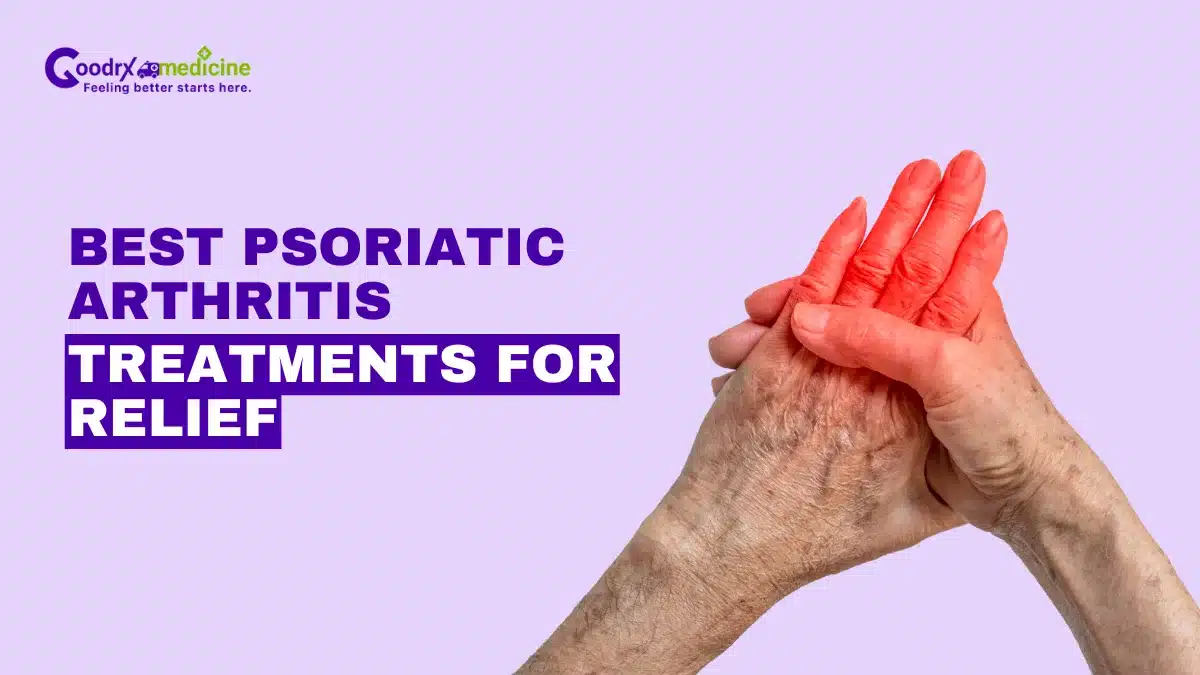Psoriatic Arthritis (PsA) affects about 1 in every 1,000 adults worldwide, yet many live well by finding the proper care. PsA can start at any age, even in children as young as 10.
This condition causes joint pain and swelling, but it does not have to stop you from enjoying life. Experts say treating early can limit joint damage and keep you moving.
Many people discover they can manage symptoms and stay active with proper attention and support. The good news is that researchers and doctors have made significant progress in understanding Psoriatic Arthritis and how to help those with it.
Keep reading to learn about the Psoriatic Arthritis treatments available to help you feel better, stronger, and more at ease.
Psoriatic Arthritis treatment goals
Psoriatic Arthritis is a long-term issue that affects joints and skin. It can cause pain, stiffness, and swelling. The goal of treatment for PsA is to lower these symptoms and improve quality of life.
There are many Psoriatic Arthritis treatment drugs or medicines available. These include pills, injections, and creams. Your doctor will help you find the correct medicine for Psoriatic Arthritis treatment based on your symptoms and health. You want Arthritis pain relief, slow joint damage, keep your skin clear, move more, and feel well.
Save up to 90% on your medicine bills

Medrol 16 Mg Tablet

Omnacortil 10 Mg Tablet

Depo-Medrol 40 Mg Injection 1ml

Omnacortil 40 Mg Tablet
Approved medications
Medicines are often the first step in Psoriatic Arthritis treatment. They help control inflammation and pain.
Below, read about the most reliable options for Psoriatic Arthritis. Experts agree that early treatment is key. Starting therapy early can limit harm to joints and tendons. Always talk to your doctor before starting any new medicine. They can explain possible side effects.
Common Psoriatic Arthritis treatment medications include:
Nonsteroidal Anti-inflammatory Drugs (NSAIDs)
NSAIDs are the first line of treatment. These help reduce pain and swelling. They are easy to use but may not work for severe cases.
You can often buy NSAIDs like Ibuprofen or Naproxen without a prescription. They are helpful for mild symptoms.
Your physician might prescribe a higher dose of NSAIDs for stronger effects. NSAIDs are generally helpful for short-term relief. They help manage immediate pain but do not stop the disease from worsening over time.
Disease‑Modifying Anti‑Rheumatic Drugs (DMARDs)
DMARDs are an essential part of Psoriasis and Psoriatic Arthritis treatment. They slow down the disease and help prevent further damage to your joints and tissues.
Methotrexate is a common DMARD. It can slow joint damage, but it may take weeks to work. It can be taken as a pill or an injection.
Sulfasalazine is another DMARD. It can ease swelling in mild cases. Methotrexate may work faster for joint pain, but Sulfasalazine may better suit those with mild skin issues.
Biologics and targeted therapies
Biologic DMARDs, or biologics, are another type. These are newer Psoriatic Arthritis treatment medicines.
Biologics are proteins made using living cells in labs. These are advanced medicines given as Psoriatic Arthritis treatment injections.
They strike specific parts of the immune system responsible for inflammation. Examples include TNF and IL-17 inhibitors, such as Adalimumab, Etanercept, and Infliximab. Biologics are helpful for severe Arthritis treatment in Psoriatic cases.
Some medicines, like Adalimumab and Etanercept, help stop TNF-alpha protein. This makes it easier for people to move their joints and helps clear up skin problems. Other medicines, like Secukinumab, work by stopping a different protein called IL-17. This also helps reduce swelling in the joints and skin for people with psoriatic disease.
Head-to-head trials show that IL-17 and TNF inhibitors have similar effectiveness in reducing joint swelling and improving clinical outcomes in Psoriatic Arthritis. JAK inhibitors like Tofacitinib may relieve joint pain faster but have different safety profiles and risks.
Psoriatic arthritis treatment injections deliver medicine under your skin. Biologics such as Ustekinumab and Risankizumab target specific immune pathways, namely IL-12/23 and IL-23.
These pathways are involved in inflammation and immune response. Individuals can often self-administer these medications at home every one to three months.
DMARDs are essential for long-term control and preventing joint damage. Biologics may offer more targeted action for some individuals.
Corticosteroids
Corticosteroids are strong medicines that fight inflammation quickly. Prednisone is a typical example.
Your doctor might suggest them for short periods during nasty flare-ups. They can also give Psoriatic Arthritis treatment injections of corticosteroids directly into an affected joint. This provides targeted relief from pain and swelling.
Corticosteroids offer rapid symptom relief. However, they are typically taken for short durations due to potential side effects.
Small-molecule medications
Some newer Psoriatic Arthritis treatment medications are taken by mouth. These target specific molecules involved in inflammation. These can be an option if other treatments have not worked well.
Phosphodiesterase-4 inhibitors like Apremilast are oral pills taken once or twice daily. They lessen inflammation in the skin and joints. For some people, they offer an alternative to injections. These medications avoid injection site problems but may cause mild stomach upset in some people.
Each medicine has benefits and risks. For example, NSAIDs are fast-acting but may cause stomach issues. Biologics can be very effective but may increase infection risk.
Always discuss all Psoriatic Arthritis treatment drugs with your healthcare provider. They will consider Psoriatic Arthritis treatment guidelines to offer the best care.
Psoriatic Arthritis natural treatment and holistic options
Many people look for Psoriatic Arthritis natural treatments or treatments for Psoriatic Arthritis natural remedies. These include diet changes, exercise, and fish oil or turmeric supplements.
A balanced diet having fruits, vegetables, and lean protein can help your body. Regular low‑impact workouts like walking or swimming keep joints moving and strong.
Natural remedies like fish oil supplements may ease joint pain in some people. Turmeric (curcumin) can reduce inflammation but may thin blood.
Some find relief through holistic approaches such as stress management and acupuncture. Holistic treatment for Psoriatic Arthritis focuses on overall well-being, not just symptoms.
While natural remedies can support your health, they usually do not replace medicine for treating Psoriatic Arthritis. Always discuss these options with your doctor to ensure they are safe and helpful.
What to discuss with a doctor
It is recommended to talk to your doctor about treatment for Psoriatic Arthritis, including medication options and injections.
Discussing holistic treatments and natural remedies can also be part of your care plan. Reviewing Psoriatic Arthritis treatment guidelines together helps ensure you receive care based on the latest expert recommendations.
It is advised to visit a specialist who follows established guidelines, such as the 2018 ACR/NPF Psoriatic Arthritis treatment guidelines, and seek FDA-approved medications.
Always consult your healthcare provider before changing any therapy to ensure safety and effectiveness.
Conclusion
Psoriatic Arthritis treatments include various options, from medicine for Psoriatic Arthritis treatment to natural remedies and holistic care. Medicines like NSAIDs, DMARDs, and biologics help control inflammation and protect joints.
Natural treatments and lifestyle changes support overall health, but they should be used alongside medical care. Early treatment of Psoriatic Arthritis symptoms is crucial for preventing joint damage and improving quality of life.
Always consult a healthcare professional before starting or changing treatments. Your doctor will help you find the safest and most effective plan based on your health history and needs. The information here is based on current research and treatment guidelines. Managing Psoriatic Arthritis is possible with proper support and care.
Frequently Asked Questions
What treatments are available for nail issues related to psoriatic arthritis?
Psoriatic Arthritis can cause nail pitting, discoloration, and thickening. Treatment often includes topical corticosteroids and biologics. Gentle nail care, moisturizing, and keeping nails clean can reduce discomfort. Consult your doctor for specific creams and medicines to address nail symptoms.
How to relieve Psoriatic Arthritis morning stiffness?
To relieve morning stiffness caused by Psoriatic Arthritis, you can gently stretch your joints and move slowly when you wake up. Warm showers or using a heating pad can also help relax your muscles. Doing light exercises regularly also keeps your joints flexible and reduces stiffness over time.
What Psoriatic Arthritis treatment does not require regular blood monitoring?
Some Psoriatic Arthritis treatments, like specific Nonsteroidal Anti-inflammatory Drugs (NSAIDs), do not require regular blood monitoring. These medicines help reduce pain and swelling but are usually used for mild symptoms. Always talk to your doctor to know which treatment is best for you.
Can you live a long, healthy life with Psoriatic Arthritis?
Yes, you can live a long, healthy life with Psoriatic Arthritis by managing symptoms through medication, regular exercise, a balanced diet, and routine medical care. Early diagnosis and consistent treatment help maintain joint function and overall well-being.
When referencing outside resources, GoodrxMedicine always provides full citations. To learn more about the measures we use to maintain the quality of our content, please review our Content Information Policy.











